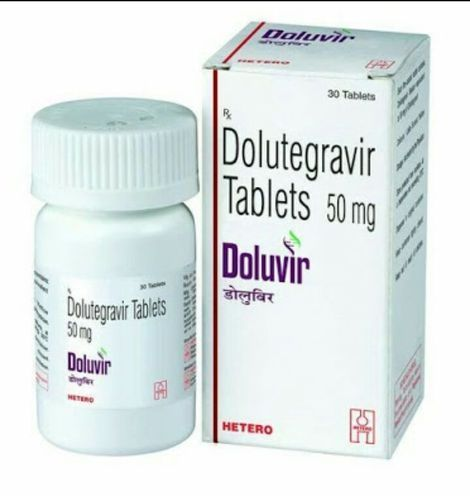The Health ministry has warned counties to stop prescribing a HIV drug linked to birth defects in HIV-positive women.

Through Director of Medical Services Jackson Kioko, the ministry has further directed county health directors to ensure that pregnant and breastfeeding mothers to whom a front-line drug, dolutegravir (DTG), has been prescribed, continue their current prescription until they stop breastfeeding.
But those of child bearing age between 15 and 49 years, who are on the drug, should be given the first-line treatment Efavirenz.
In a memo to county directors of health, Dr Kioko said the drug, which was launched in the Kenyan market last year, was not recommended for pregnant and breastfeeding women “due to limited safety data”.
He, however, added that through a circular in June 2017, the ministry had recommended the use of DTG in alternative regimen for people with HIV and have intolerance to Efavirenz, people who inject drugs and are on anti-retroviral therapy or new patients in the same category.
It was recommended to be part of the third-line drug for patients. who were not responding to the available second line anti-retroviral therapy drugs.
Dr Kioko’s memo, comes barely three weeks after the Nation highlighted that two international drug regulators had warned that a generic version of an antiretroviral drug can cause birth defects in pregnant women.
He also noted that as per the 2017 circular, adolescents and adult men on the first-line ARV drugs will be started on DTG.
“The ministry encourages all healthcare providers to be vigilant in identification and reporting of adverse drug reactions related to ARVs,” he added.
The international regulators, US Food and Drugs Administration and the European Medicines Agency last month warned that new studies indicate that women with HIV taking the drug at the time of conception or during the first trimester of pregnancy appear to be at higher risk of giving birth to babies with neural tube defects.
Neural tube defects are birth defects that can occur early in pregnancy when the spinal cord, brain, and related structures do not form properly.
“Women of childbearing age who decide to take a dolutegravir-containing regimen should consistently use effective birth control (contraception) while on HIV treatment,” noted the regulators in press statements.
DURING PREGNANCY
The drug was first approved less than four years ago and the World Health Organisation advises against using the drug during pregnancy or breast-feeding due to insufficient safety and efficacy data in this population, and this guidance remains unchanged.
Meanwhile, GSK said it was notifying doctors of the issue and working with healthcare authorities to better understand the potential risk.
Dolutegravir (DTG or Tivicay) is manufactured by British pharmaceutical giant GlaxoSmithKline (GSK) and was made available to patients through a partnership between the Ministry of Health and Geneva-based Unitaid.
Dolutegravir was authorised in the U.S in 2013 and in the European Union in 2014.
The drug work by blocking an HIV enzyme to prevent the virus from multiplying, thereby reducing the amount of virus in the body.
Given that it was a newer drug, with high costs it is largely unavailable across low- and middle-income countries, until innovative partnerships, brokered a deal between the government of Botswana (2016) and later Kenya (2017) to make it available as part of the national health programme.
The generic version sold under the brand name Tivicay and costs about Sh403 ($4) for a 30-day supply pack. Prior to the current introduction, patients paid Sh 5,045 -Sh6054 ($50-$60) for a pack.
The 2016 Botswana deal was the first time that dolutegravir, was being made available as a first-line treatment as part of a national health program in sub-Saharan Africa.
BIRTH DEFECTS
“There is no known mechanism linking dolutegravir with these types of birth defects and there are no relevant findings in pre-clinical studies,” GSK said in a statement.
“Animal models are generally predictive of drug-induced birth defects and it is very unusual to see an effect in humans if no evidence is observed in animal models.”
The two regulators said they were assessing evidence of the connection between dolutegravir and birth defects, adding that it should not be prescribed to women seeking to become pregnant.
The move made mid last may followed preliminary data from a study in Botswana which found four cases of neural tube defects such as spina bifida, in babies born to mothers who became pregnant while taking the drug.
Kindly follow us on twitter:@AfricanVoice2










